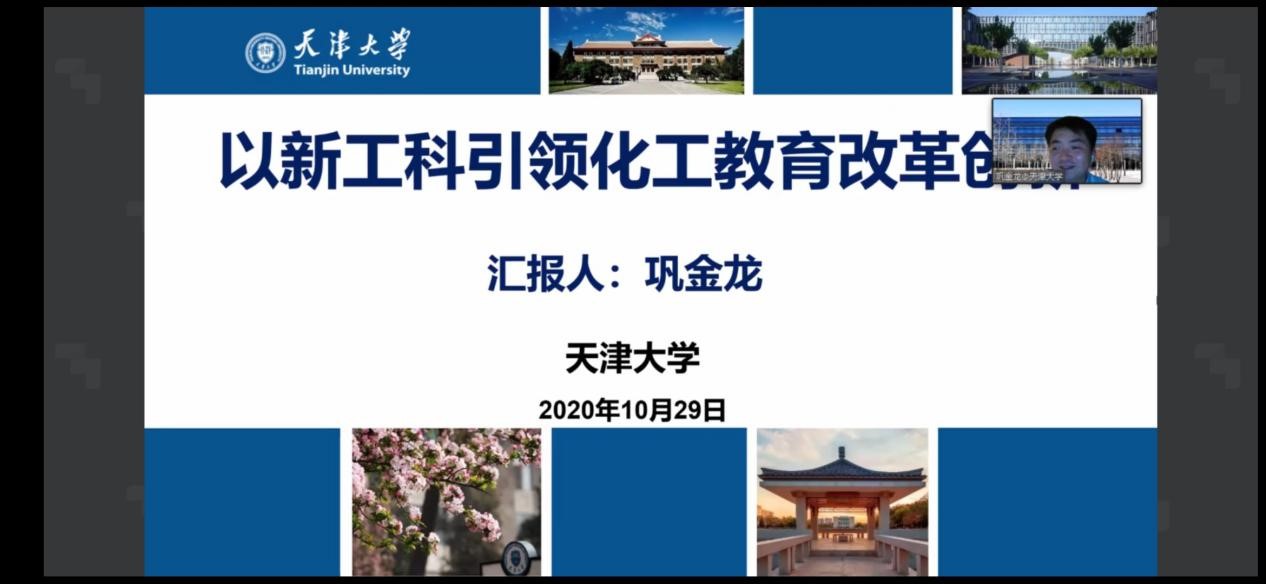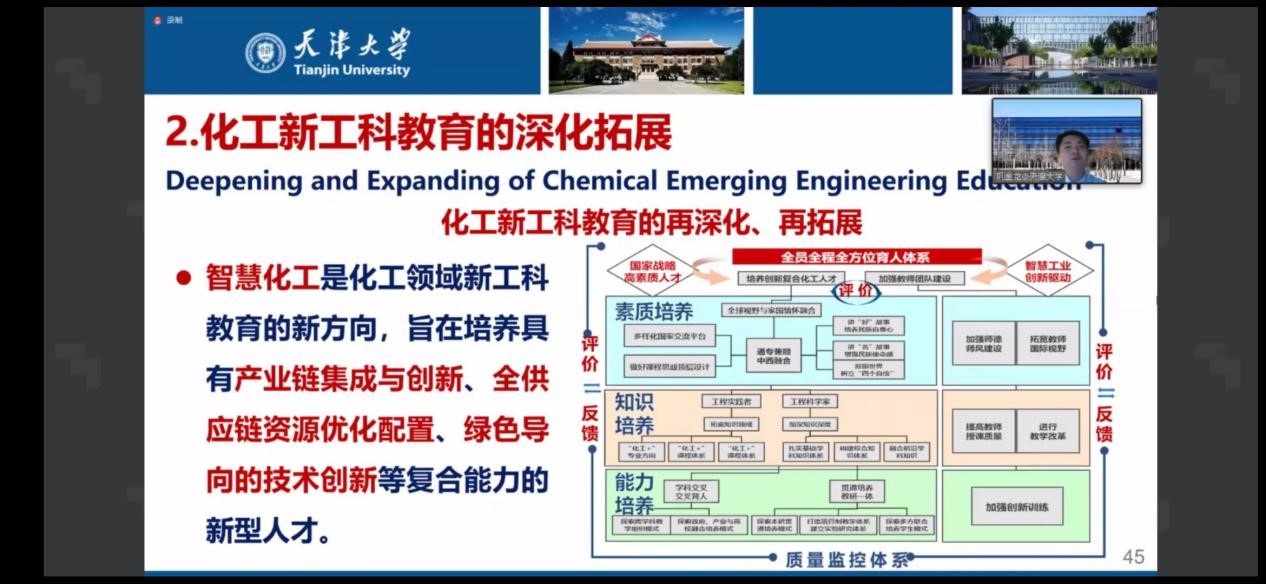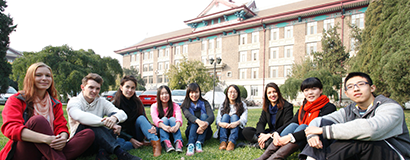The 12th Global Chinese Chemical Engineers Symposium, a global forum focusing on frontiers in chemical engineering, was held online during 27-29 October. The seminar aimed at promoting wider exchanges of scholars at home and abroad, deepening interdisciplinary cooperation and contributing to the process of turning challenges facing the world into opportunities. Gong Jinlong, vice president of Tianjin University (TJU) and a member of the Standing Committee of the CPC Committee of TJU, was invited to deliver a keynote speech titled Innovation in Chemical Engineering Education Driven by Emerging Engineering Education.

Gong reviewed the rise and development of Emerging Engineering Education, and analyzed its historical position and international standings, as well as China’s efforts to develop those disciplines. He also pointed out that progress of Emerging Engineering Education in institutions of higher learning were made through both top-down and bottom-up approaches, achieving a sound development through various successful attempts. For example, many distinguished universities, including Tianjin University, University of Electronic Science and Technology of China, South China University of Technology, Harbin Institute of Technology and Peking University, have announced plans to develop Emerging Engineering Education in line with their own conditions. After a systematic analysis of some typical plans from universities worldwide, Gong has summarized common ground of those excellent plans, including the course system featuring interdisciplinary studies, liberal studies and professional studies that run in parallel, the project-based teaching approaches and the deeper industry-education integration.

Gong also shared the latest progress of Plan of TJU in its development of Emerging Engineering Education. He pointed out that TJU is shouldering more responsibilities to serve the national strategy and regional development, and innovating its plans to better meet the demands generated in the post-Covid-19 era. In this case, TJU has introduced the Plan of TJU 2.0 that defines 12 key tasks from four main aspects. Currently, a talent-training platform of Emerging Engineering Education is being built at different levels of disciplines, schools, and universities under a customized and multi-level model. Meanwhile, TJU has developed a comprehensive curriculum system with project-based teaching and turned the development of Emerging Engineering Education from conceptual design into actual implementation.

After a systematic review of the early stage of developing Emerging Engineering Education, new topics of deeper research were highlighted, for example, the TJU smart education platform of Emerging Engineering Education. Gong said, Emerging Engineering Education has been deepened with smart technologies. Guided by the latest progress of national strategies and industrial development, TJU has been improving the talent cultivation by learning the whole process and educating whole staff in an all-round way, as the second batch of national research and development projects of Emerging Engineering Education are being implemented smoothly.
Gong also emphasized that Emerging Engineering Education should drive progress of talent cultivation themed coping with challenges and shaping the future, through launching new disciplines and meeting new demands of engineering. As more and more plans announced by universities, chemical engineering combined with smart technologies is breaking new ground for its reform and innovation. Gong has called for the cooperation of global Chinese chemical scholars to preempt opportunities behind challenges and blaze new trials under unprecedented changes emerging in the post-Covid-19 era, so that we can lead the development of Emerging Engineering Education.
By: Xie Fuyu
Editor: Qin Mian






